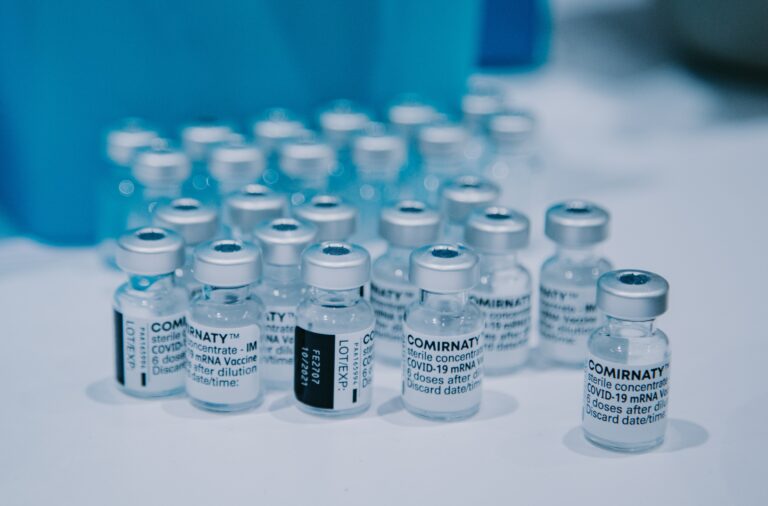Watch: RFK Jr. Hosts Food and Farming Policy Roundtable, Criticizes ‘Corrupt System of Producing Poison and Pretending It’s Food.’
In a roundtable discussion, “Revitalizing Our Food, Farms and Soil,” Robert F. Kennedy Jr., Children’s Health Defense chairman on leave, brought together regenerative farmers from across the U.S. to discuss what’s wrong with U.S. farm policy and how to fix it.
This article was originally published by The Defender — Children’s Health Defense’s News & Views Website.
Democratic presidential candidate Robert F. Kennedy Jr. last week hosted a roundtable discussion on farming and food with regenerative farmers dedicated to building an alternative farm model for the U.S.
More than 6,000 viewers watched live as Ben Dobson, Gail Fuller, Will Harris, Reginaldo Haslett-Marroquin, Kerry Hoffschneider, John Kempf, Bob Quinn, Wayne Swanson and Judith McGeary shared their visions for how to revitalize American farming with Kennedy, founder and chairman on leave from Children’s Health Defense (CHD).
Kennedy kicked off the conversation, describing his experience litigating against Big Ag companies, and in the process, learning how corporations and politicians worked together to consolidate the industry.
By passing legislation that protects factory farms, manipulating subsidy programs and forming key partnerships with industrial farmers, companies like Smithfield came to dominate the pork and chicken industries and turned the remaining family farmers into “indentured servants on their own land,” Kennedy said.
Smithfield’s low prices compelled the entire industry to switch to the same model.
Kennedy said his experience fighting Big Ag led him to seek out “the other end of the spectrum” with people “creating real food and healthy food and wholesome communities that all of us can be proud of.”
Kennedy listened, took notes and asked questions while organic food activist and filmmaker Elizabeth Kucinich moderated the panel. Each farmer shared the challenges, successes and lessons from their work “to rebuild the critical life system of our American landscape and the communities in it.”
‘What do you expect when industry writes the farm bill?’
Mexican President Andrés Manuel López Obrador recently banned genetically modified (GMO) corn in Mexican tortillas, an action that could cut GMO corn imports to Mexico from the U.S. and create a demand for non-GMO corn.
But instead of supporting the switch to non-GMO agriculture, the Biden administration’s U.S. Department of Agriculture (USDA) is taking Mexico to trade court, said Ben Dobson of Hudson Carbon in Hudson Valley, New York, putting the brakes on a market that could support U.S. farmers seeking to break dependence on GMO crops.
Different systems of compensation for farmers, Montana organic grain farmer Bob Quinn said, would be key to building a different agricultural system. The current system rewards high yields rather than cultivation of the healthy environments that make farms prosper.
Quinn said U.S. grain production has two goals — higher yield for farmers and higher-yield wheat needed by bakers. So farmers transitioned to shorter, higher-yielding, glyphosate-treated, gluten-heavy wheat — and that combination is hard for the body to process, often resulting in allergies and other diseases.
A transition to organic heritage grains could address those allergies, he said.
“I’ve come to the conclusion that farmers should be paid for nutrients produced per acre rather than pounds per acre,” Quinn said.
Reginaldo Haslett-Marroquin, a Guatemalan agronomist and owner-founder of Minnesota-based Regeneration Farms, said the government institutions and corporations that control the food system are invested in a model that “has resulted in a systemically and verifiable and quantifiable way of killing the planet in the name of food.”
“Food is sacred,” Haslett-Marroquin said. “The act of eating is a spiritual act and food sharing and ensuring everyone has it must be the end result of a successful agriculture system.”
On his farm, he said they found ways to use modern scientific advances in technology “so that we can engage the natural design and the most efficient ways of working with the land.”
Gail Fuller, a Kansas family farmer, provided more specifics about the policies that devastate farmers and the land.
Crop insurance, for example, he said incentivizes bad management. Tillage and pesticides are considered “best management practices,” so farmers using alternative practices are at greater risk.
“But what do you expect,” he asked, “when industry writes the farm bill?”
One in four children in Kansas is food-insecure, he said. The food they do have is actually “low nutrient quality, highly toxic, food-like substances.”
Fuller advocated for ending the monopolies that control agriculture, ending the silencing of scientists, and ending subsidies for destructive farm practices and for conservation programs that go nowhere.
He said policymakers need to grapple with the questions, “Have we improved food? Have we improved health? Have we improved water? … Have we improved farmer welfare and quality of life?”
Today’s farmers being ‘farmed by agribusiness’
Fourth-generation farmer Will Harris of White Oak Pastures in Georgia successfully transitioned his farm from an industrial to a regenerative farm that now employs 160 people.
He did this by embracing three principles — “regenerative soil management, compassionate animal welfare and the re-enrichment of their impoverished rural community,” he said, providing a robust model for other farms.
Kerry Hoffschneider, speaking as a Nebraskan farmer and part of the Graze Master Group, said Nebraska lacks farms like Harris’. The region faces the problem of fewer farms and ranches employing fewer people.
Problems of soil depletion and water pollution pose a major financial barrier to the farm growth necessary for the transformation of impoverished rural communities, she said, many of which lost the last of their resources during the 1980s farm crisis.
John Kempf, who comes from an Amish farming tradition, said that after transitioning from farming with pesticides to farming without them, he learned that, like people, plants have an immune system.
“But in order for that immune system to function,” he said, “it needs to be supported with nutritional integrity and microbiome integrity” that allows plants to resist diseases and insects.
Kempf said that the agricultural paradigm today assumes that agriculture is “inherently extractive” — removing nutrients and depleting soils. But, he said, that is only true of the industrial system.
Agriculture can be managed to regenerate soil health and grow plants with robust immune systems that transfer that immunity to the people and animals that consume them, he said. “And all of a sudden we can have a legitimate conversation about growing food as medicine.”
But that is nearly impossible, he said because farmers today are “being farmed by agribusiness.”
“If we really want to regenerate landscapes and regenerate agriculture, the fundamental piece that needs to be regenerated is … the capacity for stewardship,” he said. “We need more people who care deeply for the land on the landscape. We don’t have enough right now.”
‘Food as food’ — not as a commodity
Wayne Swanson, owner of Swanson Family Farm and consultant for small farms, talked about the importance of growing localized farm economies and making small farms economically viable.
He said the key to this project was educating the public to value farming that isn’t necessarily high-yielding or aesthetically beautiful, but rather values relationships and environmental and community health.
Judith McGeary, Texas farmer, attorney, and founder of Farm and Ranch Freedom Alliance, explained the regulatory framework for farming in the U.S. supports only large-scale extractive agriculture, giving small and regenerative farms very little leeway to build a different system.
(Technical difficulties cut off McGreary’s presentation.)
Dobson said the farmers at the roundtable represented “food as food” and not as a commodity.
He said a conversation about how to move on from agro-industrial techniques, chemical inputs and genetically modified crops to “rebuild the critical life system of our American landscape” must include talking about communities, farms and the ecosystems they sit in — and also international relationships.
Because each farmer had only a few minutes to speak in the hour-long event, Kennedy suggested meeting again in the future, with more time to develop proposals for transitioning U.S. farms to a system that prioritizes wholesome, nutritious foods.
He said:
“The USDA was set up to protect small farmers and to make sure that we have a wholesome food supply, and instead it’s become a sock puppet of the chemical and Big Ag industries and industrial agriculture.
“And it’s doing the exact inverse of what it was designed to do. It’s giving us poison instead of food and we’re the sickest country in the world.
“There’s all these perverse incentives that we need to unravel. …
“The food supply is controlled by these big corporate interests, either outright-controlled through ownership of the property, or effectively controlled through … inputs and the subsidy systems that lock everybody into this corrupt system of producing poison and pretending it’s food.”
Watch here:
The Defender on occasion posts content related to Children’s Health Defense’s nonprofit mission that features Mr. Kennedy’s views on the issues CHD and The Defender regularly cover. In keeping with Federal Election Commission rules, this content does not represent an endorsement of Mr. Kennedy, who is on leave from CHD and is seeking the Democratic nomination for president of the U.S.
This article was originally published by The Defender — Children’s Health Defense’s News & Views Website under Creative Commons license CC BY-NC-ND 4.0.
Related watch:








